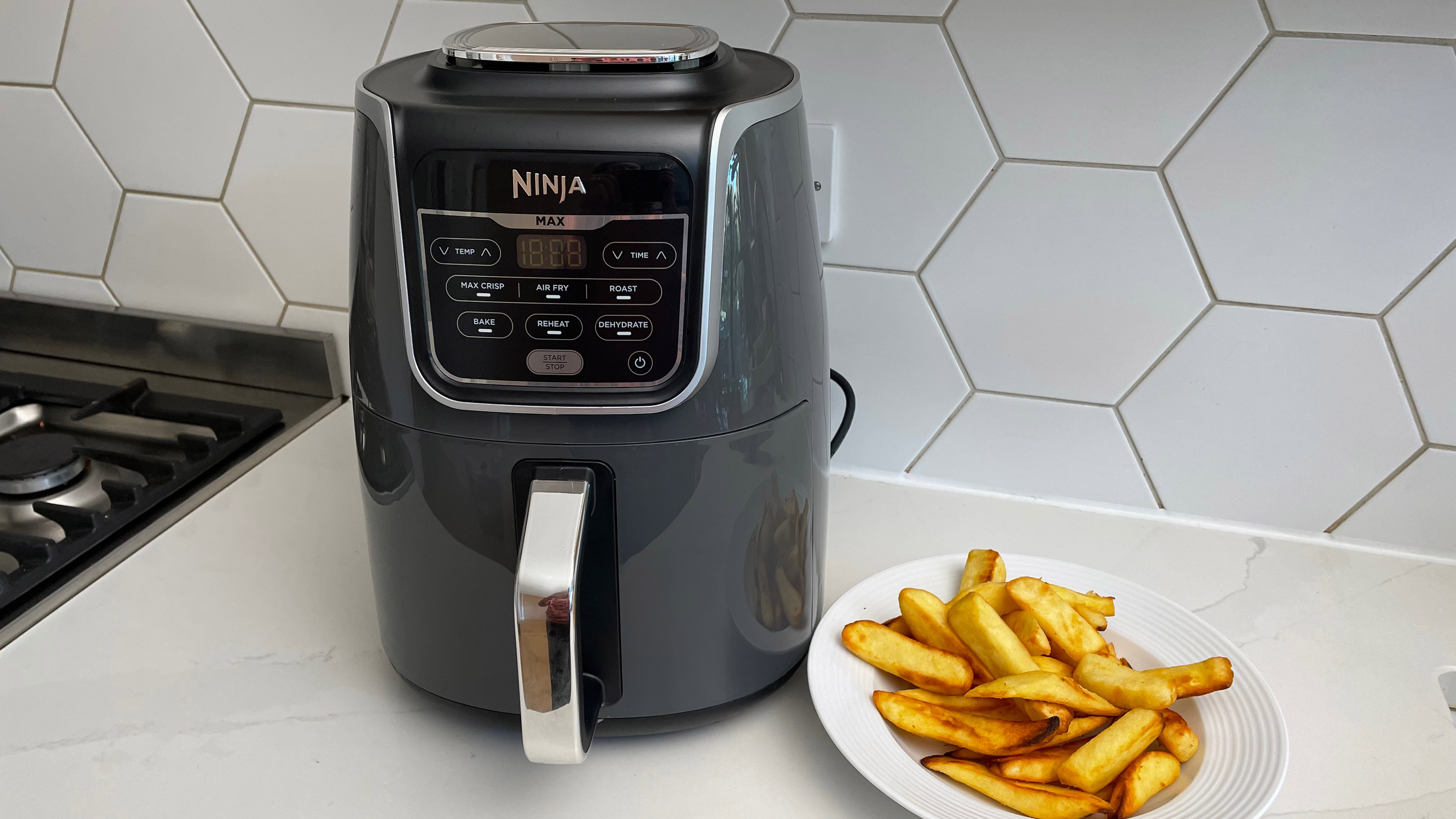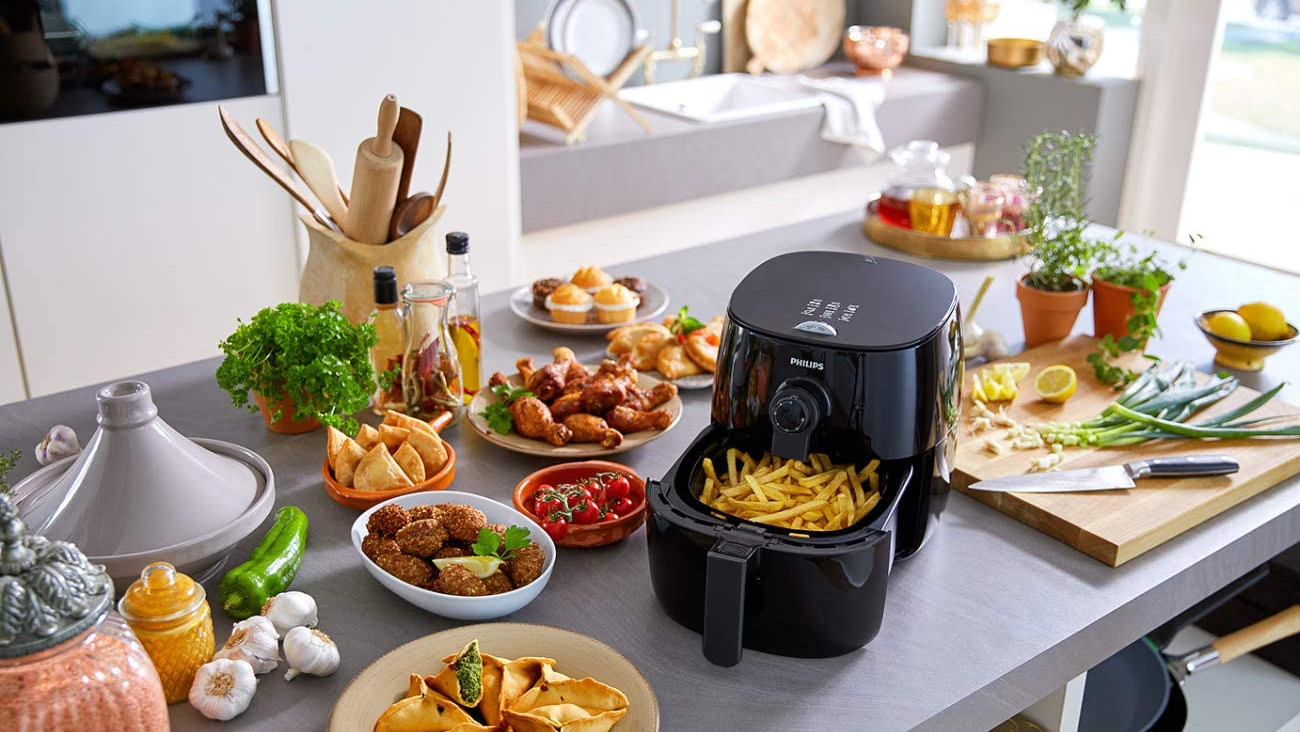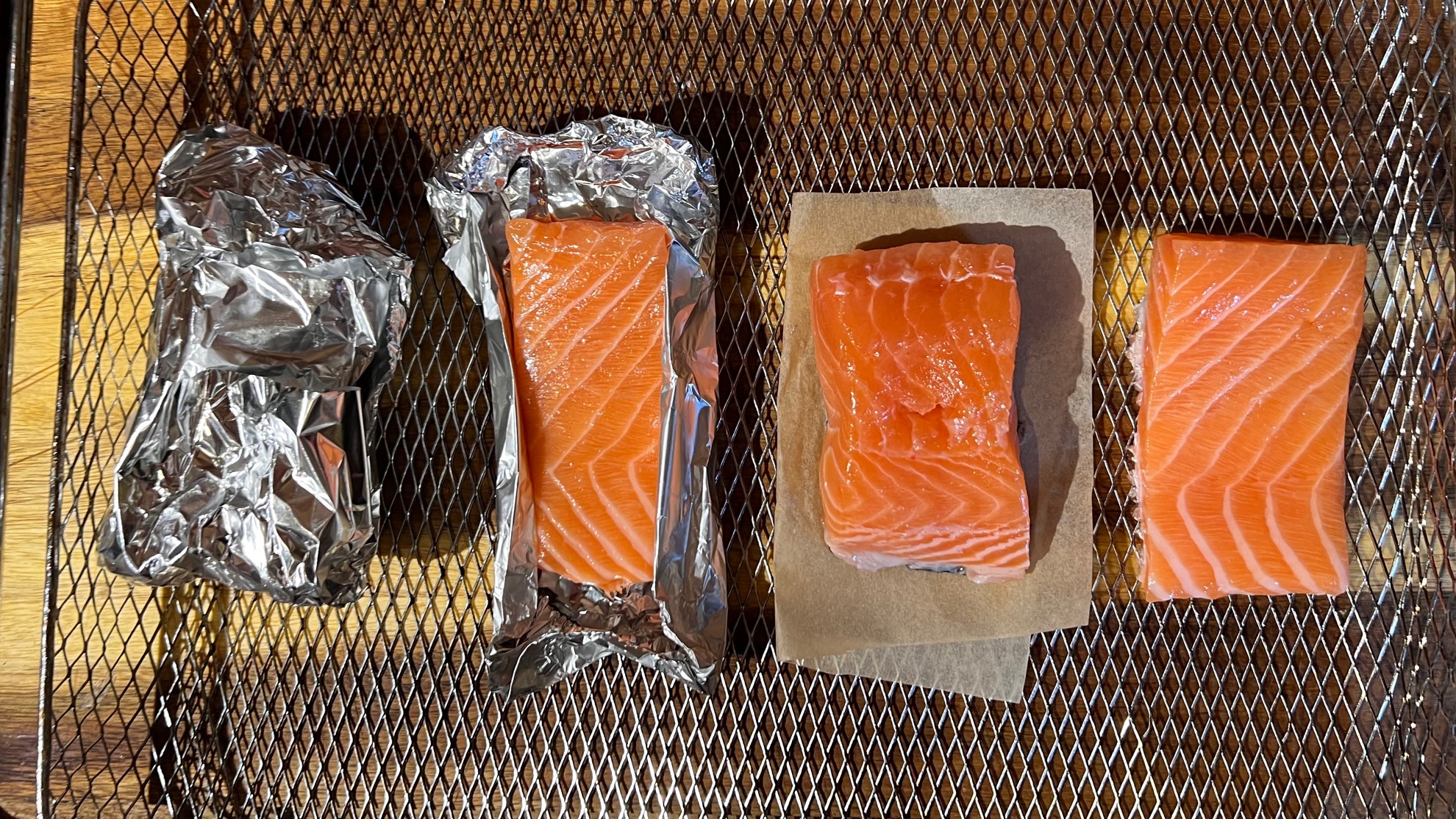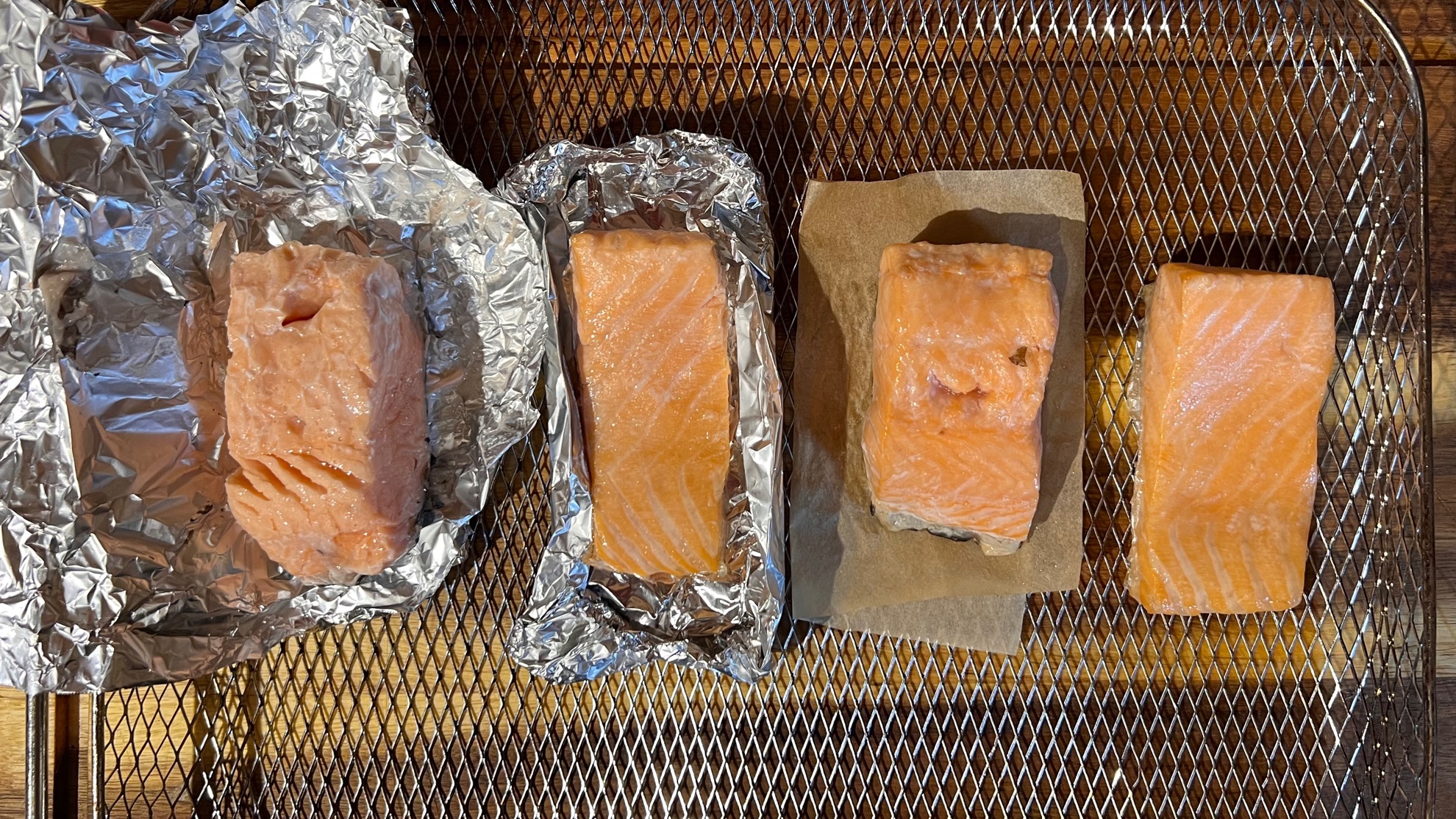9 things you need to know about your new air fryer
Do air fryers use oil? Is it safe to use foil? Is it cheaper to broil? We have the answers to all these questions and more

As air fryer hype continues to mount, we've seen all different shapes, sizes and features emerge from some of the best kitchen appliance manufacturers. From relatively compact models that will mainly be feeding our desire for fast French fries, to all-singing, all-dancing multi-function fryers that can tackle roast chicken, pastries, and much more in between.
So if you’re wondering what all the fuss is about, or weighing up whether the best air fryer deserves a space on your counter, here are the answers to your most frequently asked questions about air fryers.
1. Do I need an air fryer?
No, but there are lots of really good reasons that you might love having one. Air fryers offer a much healthier alternative to deep frying, and they cook far more quickly than convection or fan ovens. They heat up faster, and many models are small enough to sit on your countertop without getting in the way. If you like crisp fried foods, but want them to be as healthy as possible, an air fryer could be your new best friend.

2. Are air fryers expensive?
Not especially. Some of the best cheap air fryers cost well below $100/£100, and even the biggest, smartest models aren’t hugely costly. If you don’t mind sacrificing a little bit of performance, you can pick up a multi-function air-frying oven that can bake, broil, toast, roast, air fry and reheat for between $200 and $300 (£200 to £300 in the UK). Air fryer deals can often be found during big sales events such as Black Friday, too. And if you’re on a tight budget there are plenty of affordable options – why not consider certified refurbished stock on eBay, for example?
3. Do air fryers use oil?
Yes, but only in tiny amounts: typically half a tablespoon. When we make fries, we only give them a quick spritz with an oil sprayer, enough to help the crisping process, but not so much that they become soggy. Being able to get that fresh-fried crispness without using gallons of oil is one of the biggest benefits of air frying: you get all the taste without all the fat.
4. Can you put foil in an air fryer?
You can, but it isn't necessarily a good idea. The main difference between an air fryer and a convection oven is airflow: by circulating hot air very quickly around the food in the basket, an air fryer produces crisper, faster results than an ordinary oven. If you block that air – for example, by wrapping your food in foil – then you lose that benefit.
That said, sometimes a little bit of foil can be helpful – or better still, why not consider perforated parchment paper? Foil can react badly to acidic foods, such as citrus fruits and marinades containing tomato. Nevertheless, sitting food on a bit of foil or parchment paper in the basket can prevent it from sticking to the metal. However, don’t put it in until the oven has been pre-heated; it’ll blow around the inside of your air fryer if you do, and if it lands on the heating element, that could prove a disaster.
Sign up for breaking news, reviews, opinion, top tech deals, and more.
We decided to compare the different methods to see which was best. These four fillets of salmon were placed skin-down in four different ways: completely wrapped in foil; sitting in a little basket we made of foil; sitting on parchment paper; and sitting straight on the (oiled) basket.

And here are the results following 7 minutes of cooking at 400ºF.

The salmon cooked fully covered in foil was watery and a bit slimy, with the skin sticking to the foil. The fillet sat on top of the foil was firmer and dryer, and had stuck to the foil a little. The salmon on the parchment was firm, dry and lifted clean off the paper, while the fillet in the metal basket cooked just fine but when we tried to lift it off, the skin stayed put.
5. What can I cook in an air fryer?
Air fryers are best suited to dry foods that you would otherwise deep fry in oil: think potato or sweet potato fries, breaded fish, cajun-rubbed chicken and so on. It’s good for reheating dry foods such as pizza or chicken, if you have leftovers from last night’s takeout, and it’s also good for cooking frozen veggies and frozen snacks.
6. What foods can't be air fried?
Air fryers are pretty hopeless with wet-covered foods such as vegetable tempura or battered fish (the batter drips or gets blown off), and they’re not good with cheese, which melts and falls through the basket. They can cook steaks and burgers, but you don’t get the pan-fried charring that provides so much of the taste. Green leaves such as spinach don’t cook well in air fryers either, and few air fryers get hot enough to make popcorn pop.
As with deep frying, it’s important that you don’t overcrowd the basket.
The other important thing to note is unless you buy a multifunction oven or a double-basket air fryer, you'll be limited to cooking the contents of a single, often fairly small basket. You’re not going to get an entire turkey, tons of veggies and two dozen pigs in blankets in there on Thanksgiving or Christmas Day.
7. Do air fryers use a lot of energy?
That depends on the model. The smallest air fryers may use about 700W, but some of the biggest ones run at up to 2,000W.
8. Are air fryers cheaper to run than convection ovens or stoves?
Yes. Electric ovens typically draw between 2,000W and 5,000W, and the largest burner on an electric range or stove can be 2,000W to 2,500W. An air fryer cooks in a shorter amount of time, as is the pre-heating time, so even the most powerful air fryer will use less energy overall. And if you have a small kitchen like ours, an air fryer won’t make your kitchen uncomfortably warm as conventional ovens often do.
9. Are air fryers cheaper to run than microwave ovens?
No. Microwave ovens use less energy – even the most powerful microwaves tend to top out at 1,000W compared to up to 2,000W for the largest family sized air fryers – and they use that energy for a much shorter period of time. But they cook in a different way so, for example, you wouldn't make French fries in the microwave; and you wouldn't air fry a lasagne ready meal.

Contributor
Writer, broadcaster, musician and kitchen gadget obsessive Carrie Marshall has been writing about tech since 1998, contributing sage advice and odd opinions to all kinds of magazines and websites as well as writing more than twenty books. Her latest, a love letter to music titled Small Town Joy, is on sale now. She is the singer in spectacularly obscure Glaswegian rock band Unquiet Mind.
- Josephine WatsonManaging Editor, Lifestyle